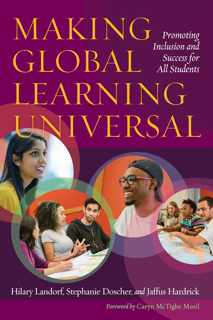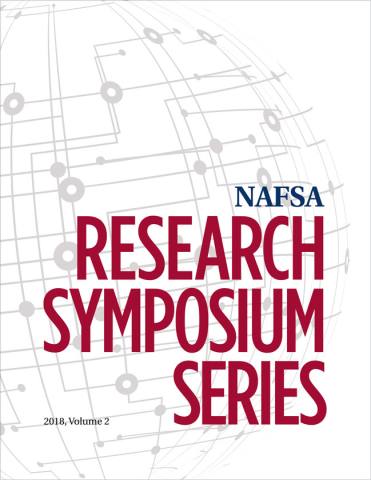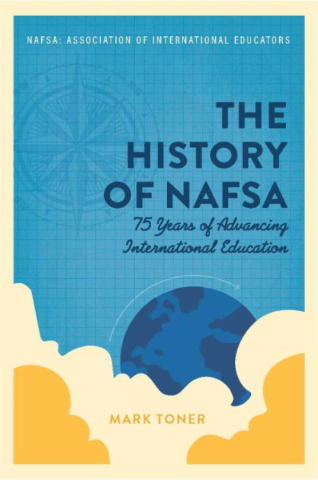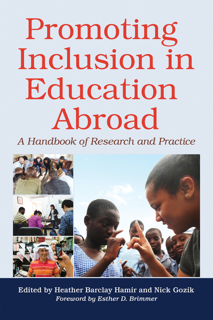Making Global Learning Universal: Promoting Inclusion and Success for All Students
While there is wide consensus in higher education that global learning is essential for all students' success, there are few models of how to achieve this goal. The authors of Making Global Learning Universal: Promoting Inclusion and Success for All Students, all of whom are from one of the nation's largest and most diverse research universities, provide such a model and, in doing so, offer readers a broad definition of global learning that both encompasses a wide variety of modes and experiences—in-person, online, and in cocurricular activities at home and abroad—and engages all students on campus. They provide a replicable set of strategies that embed global learning throughout the curriculum and facilitate high quality, high-impact global learning for all students.
The approach this book describes is based upon three principles:
- global learning is a process to be experienced, not a thing to be produced
- global learning requires all students' participation—particularly the underrepresented's—and cannot succeed if reserved for a select few
- global learning involves more than mastery of a particular body of knowledge.
The authors conceptualize global learning as the process of diverse people collaboratively analyzing and addressing complex problems that transcend borders of all kinds. They demonstrate how institutions can enable all students to determine relationships among diverse perspectives on problems and develop equitable, sustainable solutions for the world's interconnected human and natural communities. What's more, they describe how a leadership process—collective impact—can enable all stakeholders across departments and disciplines to align and integrate universal global learning throughout the institution and achieve the aims of inclusive excellence.

Making Global Learning Universal: Promoting Inclusion and Success for All Students
While there is wide consensus in higher education that global learning is essential for all students' success, there are few models of how to achieve this goal. The authors of Making Global Learning Universal: Promoting Inclusion and Success for All Students, all of whom are from one of the nation's largest and most diverse research universities, provide such a model and, in doing so, offer readers a broad definition of global learning that both encompasses a wide variety of modes and experiences—in-person, online, and in cocurricular activities at home and abroad—and engages all students on campus. They provide a replicable set of strategies that embed global learning throughout the curriculum and facilitate high quality, high-impact global learning for all students.
The approach this book describes is based upon three principles:
- global learning is a process to be experienced, not a thing to be produced
- global learning requires all students' participation—particularly the underrepresented's—and cannot succeed if reserved for a select few
- global learning involves more than mastery of a particular body of knowledge.
The authors conceptualize global learning as the process of diverse people collaboratively analyzing and addressing complex problems that transcend borders of all kinds. They demonstrate how institutions can enable all students to determine relationships among diverse perspectives on problems and develop equitable, sustainable solutions for the world's interconnected human and natural communities. What's more, they describe how a leadership process—collective impact—can enable all stakeholders across departments and disciplines to align and integrate universal global learning throughout the institution and achieve the aims of inclusive excellence.





